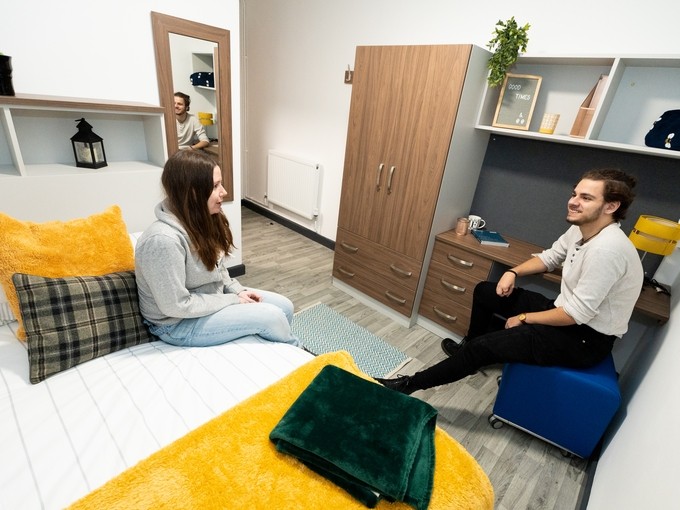The MA in Archaeological Practice is designed to develop practical skills for post-excavation analysis ranging from environmental analysis to artefact handling and analysis.
There is an emphasis on developing skills necessary for project management and/or working in the heritage industry.
There is also an Archaeological Specialist Pathway offering apprenticeships for those already working in the industry.
Course details
- On-campus
- Part-time
- English
Why choose this course?
What you will learn
This MA has been developed for Archaeology graduates and other students who wish to become archaeological practitioners in the field. It is designed specifically to allow these students to acquire practical skills in handling and interpreting post-excavation materials. A key aspect of the program is its hands-on approach, with handling exercises and laboratory-based learning. This is thoroughly embedded within a theoretical framework appropriate to current archaeological interpretation, which provides students with the skills to present the archaeological material in a variety of media to diverse audiences.
In Part One, each module is worth 30 credits and in addition to the one compulsory module, students have a choice from the list of optional modules noted below.
In Part Two, students are given the opportunity to research in detail a topic which has particularly appealed to them and write an extended dissertation (for 60 credits). Students will be allocated a supervisor to help guide them through their dissertations.
(An Archaeological Specialist MA for graduates already working in archaeology, as part of an apprenticeship scheme is also available - blended learning)
Compulsory
(30 credits)
(60 credits)
Optional
(30 credits)
(30 credits)
(30 credits)
(30 credits)
(30 credits)
Disclaimer
-
We listen to student feedback and insights from industry and from professionals to ensure that course content is high-quality and up-to-date, and that it offers the best possible preparation for your future career or study goals.
For this reason, there might be modifications to the content of your course over time, to keep up to date with changes in the subject area or in the sector. If a module is no longer running, we’ll make sure to keep you informed, and work with you to choose a different suitable module.
Ratings and Rankings
Staff
Our People
You will be taught and supported by a wide range of professional staff and teams here to help you get the university experience you are looking for. Our teaching staff were ranked 2nd in Wales for assessments and feedback (NSS 2023) meaning the comments you get back from your work will help you learn. Our commitment to your learning has seen our students place us as Top 10 in the UK for Lecturers and Teaching Quality. Find out more about our academic staff who teach across our courses.
Accommodation

Lampeter Accommodation
Our Lampeter accommodation is based on our Lampeter Campus, meaning you are never far from what is happening on campus. We have a variety of different options open to our students which will suit all budgets.
Further information
-
Applicants are expected to have a good first degree (a first or upper second), although every application is considered in its own merit, so places may be offered on the basis of professional qualification and relevant experiences. Candidates with a lower degree classification or no degree may be admitted at Postgraduate Certificate or Diploma level, with an opportunity to upgrade to Master’s level if satisfactory progress is made.
-
The modules are assessed by a variety of assessment methods: reports, essays, object analyses, comparative analyses, short assignments, oral assessments and one 15000-word dissertation.
-
Students may spend up to £300 per year on books and additional related materials.
-
You may be eligible for funding to help support your study. To find out about scholarships, bursaries and other funding opportunities that are available, please visit our Bursaries and Scholarships section.
-
This programme is ideal for those who have an archaeology degree but would like more practical module choices to help them improve their job prospects in archaeology.
